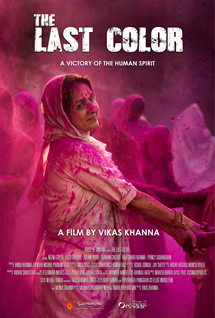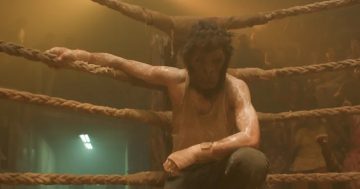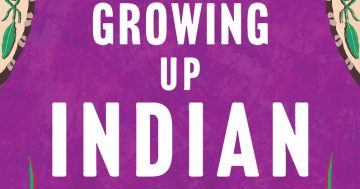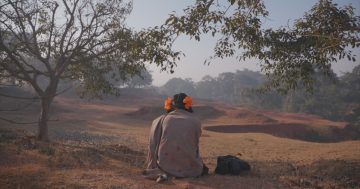Reviewed by Rama Gaind.
Director: Vikas Khanna, RealTV.
 In March 2013 a historic decision meant colour became a symbol of victory, freedom and rebirth as widows celebrated Holi for the first time in India. That’s because the Supreme Court of India had passed orders for the rehabilitation and empowerment of widows in August 2012.
In March 2013 a historic decision meant colour became a symbol of victory, freedom and rebirth as widows celebrated Holi for the first time in India. That’s because the Supreme Court of India had passed orders for the rehabilitation and empowerment of widows in August 2012.
The right of women to live with dignity has always intersected with outdated norms in Indian society. The Last Color is about conquest of the human spirit, hope, promise, a true heartening … a valued film in the Hindi language (with English subtitles) that has emotion, intellect and plenty of boldness.
It’s a communal drama about parity and reverence for widows in society, their involvement in festivals and elimination of discrimination on the basis of caste, class, gender or sexual orientation. The setting is 1989 Benaras, and Indian Michelin-star chef, humanitarian and now filmmaker Vikas Khanna focuses on an age-old taboo surrounding widows in Vrindavan and Varanasi in India.
Based on his novel of the same name, this is Khanna’s directorial debut highlighting the need for equality and respect for widows in society. Many issues are infused into the film that starts in 2013 and gets a flashback of 24 years.
Unfolding on the banks of the Ganges River, Chhoti promises hope to Noor as this poignant story of love, friendship, commitment and triumph of the human spirit unfolds. Nine-year-old flower seller and tightrope walker Chhoti (Aqsa Siddiqui) befriends Noor (Neena Gupta, Woh Chokri, Badhaai Ho), a 70-year-old widow living a colourless life of abstinence. Gupta is the film’s soul, while the heart belongs to Siddiqui.
Mention also needs to be made of Rudrani Chhetri, who gives a striking portrayal as Anarkali, a transwoman. Cinematography by Subhranshu Das attractively captures the sedate pace, which is in sync with the silky smooth background score from Priyabrata Panigrahi.











